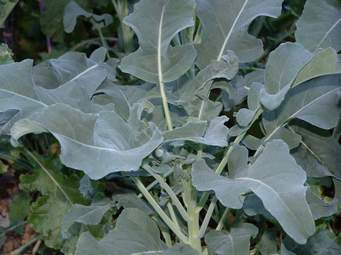Benefit Of Consuming Green Leaf Vegetables
An increase in world population has put enormous pressure on the food industry to feed more people easily in a more productive way. This has led to the introduction of chemically laden foods (Hong 2016). These modern food products contribute to diseases that affect people’s well-being as they are closely linked to chronic maladies (Lu et al. 2012, Bello et al 2019)
Researchers have suggested that chronic illnesses such as cancer diabetes and neurodegenerative diseases are a result of an accumulation of free radicals (Rahman et al. 2015). Free radicals are molecules that contain an unpaired electron and are therefore chemically unstable. The free radical becomes stable by pairing with molecules such as proteins, fats and nucleic acids, causing damage to cells resulting in onset of diseases. Our bodies have natural antioxidants which help us remove free radicals, but these are easily overwhelmed through activities such as consumption of polluted water, smoking and drinking alcoholic beverages.
Dietary intake is a reasonable way of ensuring that our bodies are protected from harmful effects caused by free radicals (Rahman et al.2015). A healthy diet must therefore contain substances that are able to mop up excess free radicals from our bodies. This removal of free radicals is scientifically known as radical scavenging. Radical scavengers which are also known as antioxidants prevent oxidative damage of cells by donating electrons to free radicals thereby stabilising them.
Because of their immense nutritional value, vegetables play an important role in improving the nutritional status of a population and prevent a number of chronic illnesses (Zihad et al. 2019). However, there is scarcity of scientific evidence to raise awareness in beneficiaries of their nutraceutical and pharmaceutical value. Lack of scientific information has led to the labeling of this nutritional gold mine as a ‘diet for the poor’.
Research has shown that eating vegetables has a positive link to disease prevention (Ocean et al. 2019). Antioxidants in vegetables play an important role in the elimination of free radicals from biological systems (Zihad et al. 2019) which cause disease and aging ( Bairu et al. 2011). Artificial food additives are effective radical scavengers but most of them are suspected to be carcinogenic (Zihad et al. 2019). Carcinogenic substances are a group of compounds that induce cancer. Vegetables are a sustainable way to eliminate oxidants and prevent proliferation of related ailments as they are cheap and readily available. Besides being potential antioxidants vegetables are also known to be rich in fibre a nutritional component which helps fight constipation.
I hope knowledge of antioxidant capacity of vegetables will help to encourage you to consume a variety vegetables. Go green, go vegetables! You spend very little, but the accrued health value is immeasurable.




